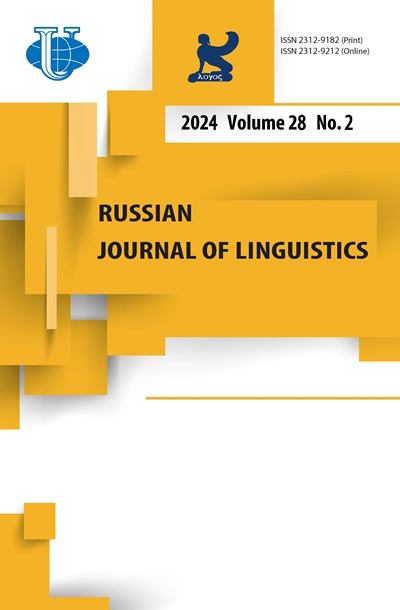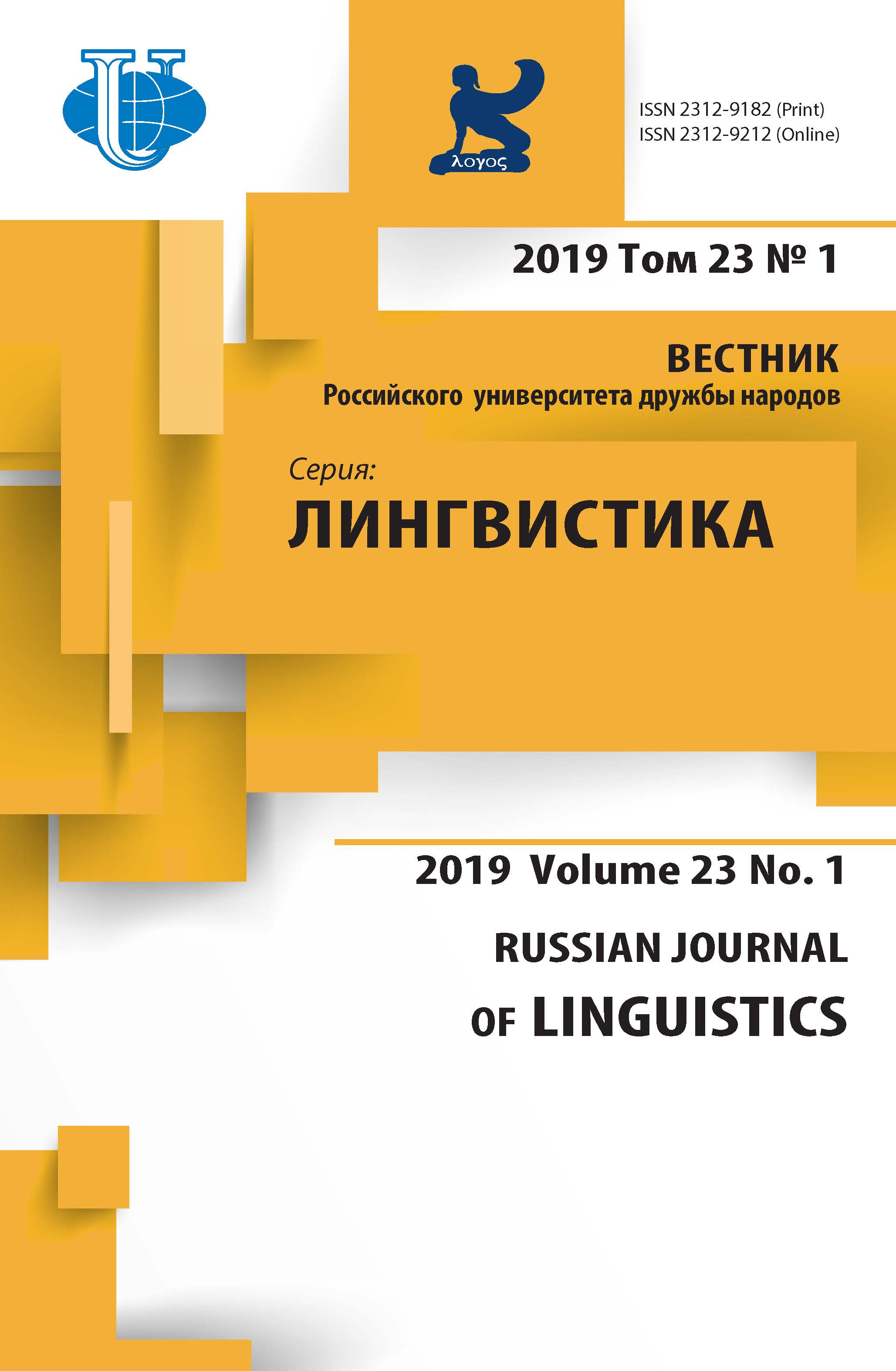Как не действовать словом: Барак Обама о геноциде армян 1915 г
- Авторы: Золян С.Т.1,2
-
Учреждения:
- Балтийский федеральный университет им. И. Канта
- Институт философии, социологии и права Национальной академии наук Армении
- Выпуск: Том 23, № 1 (2019)
- Страницы: 62-82
- Раздел: СОЦИОЛИНГВИСТИКА
- URL: https://journals.rudn.ru/linguistics/article/view/20616
- DOI: https://doi.org/10.22363/2312-9182-2019-23-1-62-82
Цитировать
Полный текст
Аннотация
В основе статьи - описание дискурсивных стратегий Барака Обамы при его обращении к теме геноцида армян 1915 года. Этот тип дискурса, как и официальный американский дискурс на эту тему в целом, можно охарактеризовать как «уклонистский». Сам термин «геноцид» заменяется полуофициальным неологизмом «Медс Егерн», транслитерацией армянского наименования геноцида 1915 г. Подобный дискурс уклоняется от однозначных оценок и выражений, в связи с чем, в отличие от утверждающих или отрицающих, оказывается приемлемым для адресатов с различными политическими установками и ожиданиями. Анализируя различные коннотативные и металингвистические механизмы табуирования, мы показываем, как Обама радикально трансформирует семантические принципы дискурса своих предшественников и вместе с тем сохраняет те же целеполагающие характеристики. Транслитерированное армянское наименование геноцида 1915 г. может означать «все и ничего»: для армянской аудитории это означает полное принятие их точки зрения и языка, в то время как для остального мира это только непонятный знак. Демонстрируется, что лингвистические и семиотические ресурсы дискурса Барака Обамы о геноциде армян основаны на преднамеренной двусмысленности и амбивалентных интерпретационных стратегиях, где межтекстовые связи заменяют референтную семантику. Герменевтический подход представляется наиболее адекватным инструментом для интерпретации подобных типов дискурса, когда интерпретатор наделяется компетенцией эксплицировать те интертекстуальные смыслы и сообщения, которые имплицитно содержатся в тексте.
Ключевые слова
Об авторах
Сурен Тигранович Золян
Балтийский федеральный университет им. И. Канта; Институт философии, социологии и права Национальной академии наук Армении
Email: surenzolyan@gmail.com
доктор филологических наук, профессор, Балтийский федеральный университет им. И. Канта, Россия; ведущий научный сотрудник, Институт философии, социологии и права Национальной академии наук Армении Россия, 236041, Калининград, 14 A. ул. Невского; Армения, 375010, Ереван, 44 ул. Арами
Список литературы
- Cirillo, David. The Taboo of the Armenian Genocide. Part 2. The American Avoidance // IFRI = Institut Français des Relations Internationales. Reperes sur le Turqule. № 15, June 29, 2016.
- Eco U. The Role of the Reader: Explorations in the Semiotics of Texts. Bloomington, Indiana University Press, 1984.
- Fish, Stanley. Is There a Text in This Class? The Authority of Interpretive Communities. Cambridge, Mass.: Harvard University Press, 1980.
- Gutman D. Ottoman Historiography and the End of the Genocide Taboo: Writing the Armenian Genocide into Late Ottoman History. Journal of the Ottoman and Turkish Studies Association. 2015, 2. 167-183.
- Hjelmslev, Louis. 1961 [1943]. Prolegomena to a theory of language. Madison, WI: University of Wisconsin Press.
- Iser, Wolfgang ([1972] 1974). The Implied Reader: Patterns of Communication in Prose Fiction from Bunyan to Beckett. Baltimore: Johns Hopkins UP.
- Lemkin, Raphael. On the Armenian Genocide. Charny I.W.; Wiesenthal S., Tutu D. (Eds). Encyclopedia on Genocide, ABC - CLIO, 1999, 79.
- Riffaterre M. Describing Poetic Structures: Two Approaches to Baudelaire’s ‘Les Chats’. Yale French Studies 36-37 (1966): 200-242.
- Scott Straus. Darfur and the Genocide Debate. Foreign affairs. January/February 2005, 123-133.
- Waal de, Thomas. The G-Word. The Armenian Massacre and the Politics of Genocide. Foreign affairs (Council on Foreign Relations). January/February 2015 Issue 94. 1-25; https://www.foreignaffairs.com/articles/united-states/g-word (accessed 03/12/2018).
- Wilson Woodrow - 66th Congress 2nd Session House of Representatives Document No. 791. Mandate For Armenia Message from the President of the United States, requesting that the Congress grant the executive power to accept for the United States a mandate for Armenia May 24, 1920. http://www.armenian-enocide.org/Affirmation.64/current_category.4/affirmation_detail.html (accessed 03/12/2018)
- Zolyan S.T. The American Presidents on the Armenian Genocide. The Semantics and Pragmatics of the Evasionist Discourse. Yerevan, “Limush” Publishing, 2015. (In Armenian)

















